'Why will there never be a coup d'état in the United States?' Because there is no U.S. embassy in Washington”, says an old popular joke.
By Raúl Antonio Capote and Delfin Xiqués
U.S. embassies, with a long tradition in coups d'état and political subversion - Paraguay 1954, Guatemala 1954, Dominican Republic 1963, Brazil 1964, Argentina 1976, Bolivia 1971, Uruguay 1973, Chile 1973-, became the base of operations for destabilization in the continent.
The military occupation, the imposition of the Platt Amendment in Cuba and the multiple armed interventions of the United States in the internal affairs of the Island, during the first decades of the 20th century, symbolized the advent of the neocolonial Republic.
Then we had Yankee embassy in which more than ambassadors, proconsuls invested with more authority than a Spanish Captain General, bossed presidents, parliamentarians and military.
That lasted until January 1959, when the Revolution triumphed. There were no direct bilateral diplomatic ties between the two countries between 1961 and 2015, after President Dwight D. Eisenhower broke off relations with the largest of the Antilles.
U.S. Ambassadors to Cuba
Herbert G. Squiers: May 20, 1902 - December 2, 1905
- He was a fervent annexationist. He participated on behalf of his country in the signing of the first treaty on the Isle of Pines; he was such an interferenceist that he forced the U.S. State Department in 1905 to remove him from his post.
William E. Gonzales: June 21, 1913-December 18, 1919
- On August 9 he ratified the approval of the government of General Mario García Menocal, who by then succeeded that of General José Miguel Gómez, making use of the Platt Amendment.
Boaz W. Long: June 30, 1919 - June 17, 1921
- During his mission in Cuba, Enoch H. Crowder is appointed with the rank of “personal envoy” of U.S. President Warren G. Harding. The “envoy” supervised Cuban state activities and acted as the highest authority, even above the President of the Republic.
Enoch H. Crowder: February 10, 1923 - May 28, 1927
- On March 5, 1923, he presented his credentials as the first ambassador of his country in the Caribbean nation, when the Northern Legation on the Island became an Embassy.
Harry F. Guggenheim: October 10, 1929 - April 2, 1933
- He was ambassador during the dictatorship of Gerardo Machado, which he supported on behalf of his government.
Sumner Welles: April 24, 1933 - December 13, 1933
- Sent to Cuba as “mediator” between the dictator Gerardo Machado and the popular forces. His presence was declared unwelcome by the Hundred Days Government, due to his interfering attitude.
Jefferson Caffery: February 23, 1934- March 9, 1937
- He continued the same line of his predecessor and began to conspire with elements opposed to the revolutionary government to overthrow it.
Robert Butler: May 22, 1948- February 10, 1951
- On March 11, 1949, U.S. Marines, who had arrived in Havana's port, outraged the statue of José Martí. The ambassador's apology showed the Government's contempt for him; he did not even know the name of Cuba's National Hero.
Arthur Gardner: May 28, 1953 - June 16, 1957
- He was a staunch supporter of Fulgencio Batista. The CIA station in Havana had at that time more than two dozen operational officers in its embassy. During his work, the Bureau for the Repression of Communist Activities (BRAC) was created on the island.
Earl E. Smith: June 3, 1957 - January 19, 1959
- Openly supported the dictatorship of Fulgencio Batista. After the triumph of the Cuban Revolution, Smith resigned on January 10, 1959 and was replaced by Phillip W. Bonsal.
Heads of the U.S. Interests Section (USINT)
The U.S. Interests Section (USINT) operated from September 1, 1977 to July 20, 2015, and became the headquarters of the counterrevolution in Cuba.
Lyle Franklin Lane: 1977-1979
- He was appointed by President Jimmy Carter as the first Chief of the U.S. Interests Section in Havana.
Curtis W. Kamman: 1985-1987
- On January 29, 1987, Commander-in-Chief Fidel Castro Ruz warned Curtis W. Kamman about the espionage activities carried out from USINT. In the summer of that year more than one hundred CIA officers, among those stationed at SINA, were unmasked.
Joseph Sullivan: 1993-1996
- Maintained close ties with “opposition” groups, among them the “dissidents” of Concilio Cubano.
Vicki Huddleston: 1999-2002
- In 2000, USINT sought to manipulate an event of great international prestige such as the 7th edition of the Havana Biennial. Parallel to the event's activities, officials of the Interests Section developed their own plan: an aggressive operation of influence and recruitment.
James Cason: 2002-2005
- Following instructions from the White House, he used diplomatic immunity to organize meetings in his official residence with leaders of counterrevolutionary organizations. He supported “opposition” organizations with all kinds of resources, which was denounced in 2003 by Cuban television.
Michael E. Parmly: 2005-2008
- He gave continuity to the work of his predecessor. Notes exchanged between Martha Beatriz Roque Cabello and Cuban-Americans living in Florida implicated Parmly with Cuban-born terrorist Santiago Álvarez Fernández-Magriñá.
Jonathan D. Farrar: 2008-2010
- In 2010 the Wikileaks site declassified a cable from Farrar in which he acknowledged that he was in contact “with most of the official dissident movement in Havana,” whose members, he claimed, frequently visit USINT.
John Caulfield: 2011 - 2014
- On June 19, 2012, USINT culminated an Introduction to Journalism course through which about 26 counterrevolutionaries obtained their diplomas, issued by Florida International University.
All of the following served as Chargé d'Affaires a.i. at the U.S. Embassy.
Mara Tekach: July 20, 2018-July 21, 2020
- On November 20, 2019, Tekach was charged with working closely with Cuban counterrevolutionary José Daniel Ferrer. He focused his work on the purpose of recruiting mercenaries, identified areas of the economy against which to target coercive measures, and actively engaged in defamation and open incitement to violence.
Timothy Zúñiga-Brown: July 31, 2020 to July 14, 2022
- He worked to create an artificial crisis, trying to portray as political an economic emigration caused, in the first place, by the very blockade measures designed for that purpose. He was determined, like his predecessors, to provoke an explosion on the island by any means necessary.
Mike Hammer November 14, 2024
- The “Ambassador of the Cuban counterrevolution” carries out an active provocative work with the aim of creating a diplomatic crisis that will lead to his expulsion from Cuba and justify the closing of the embassy. To that end he consciously violates everything established.
Source





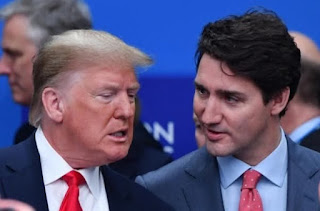
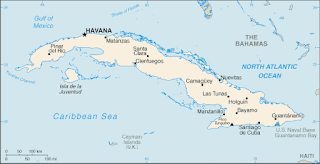

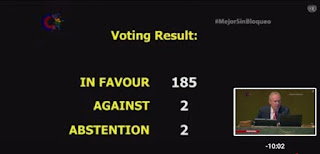
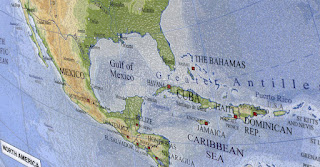

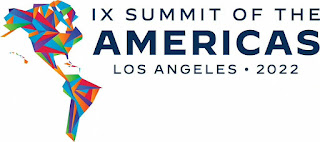
.jpg)